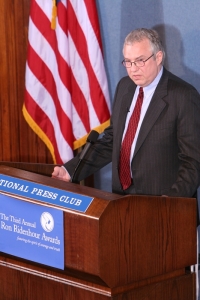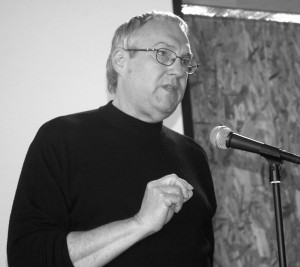Founder (1943-2014)
Frederick S. “Rick” Piltz was born and raised in Detroit, Michigan; he was a public interest educator, writer, policy analyst, and advocate. Piltz got his undergraduate degree and was a Ph.D. candidate in Political Science at the University of Michigan in Ann Arbor. He taught political science at the University of Texas at Austin for four years, then turned to an interest in environmental and energy policy issues in the late 1970s; he then worked on these issues in both the executive and legislative branches of federal and state government, and in nonprofit public interest organizations. Piltz moved to Washington, DC in 1988, shortly before the first highly publicized Congressional hearing on global warming, and from that week onward he maintained a primary focus on the interactions of politics and science on the problems of global climate change and related issues. During his more than 20 years in Washington, his primary focus was on the collision of climate science with the reality of climate politics and policy.
Piltz served as a professional staff member of the US House of Representatives Committee on Science, Space and Technology from 1991 to 1995. There he supported the Committee’s oversight of climate and global change issues, including the US Global Change Research Program, as well as energy technology R&D issues. In this position he developed a strong interest in climate science research and served as a bridge between the research community and the policy arena.
In 1995 Piltz went to work as a Senior Associate at the Coordinating Office of the U.S. Global Change Research Program, where he stayed for ten years. In carrying out his responsibilities in this $2 billion a year climate science program, he developed an inside perspective on the relationships between the science community, career federal science program managers, political appointees under two administrations, and the Congress under shifting majorities. For nine years he edited and coordinated the development of Our Changing Planet, the program’s annual report to Congress and a principal means by which the activities of the U.S. Government are communicated to a wide audience.
Rick Piltz resigned from the program in March 2005, in protest of political tampering with communications emanating from the federal science programs. “I believe the overarching problem is that the Bush Administration…does not want and has acted to impede forthright communication of the state of climate science and its implications for society,” he wrote in his letter of resignation. Piltz blew the whistle on a high-level Bush White House operative who had been editing scientific reports to downplay the climate change threat. His whistleblower documentation of politically motivated White House editing and censorship of climate science program reports intended for the public and Congress received front-page coverage on June 8, 2005 in The New York Times, and was widely reported in the media. The story relied heavily on background material and leaked examples of edited documents Piltz and GAP had provided; the scathing article condemned the actions of Philip Cooney, Chief of Staff for the Council on Environmental Quality, who then abruptly left his post and took a job with the Exxon Mobil Corporation.
For these revelations, Piltz won the 2006 Ridenhour Prize for Truth-Telling.

“You have to have the leadership – listen to what federal climate scientists are saying – and embrace it and accept it and promote it and act on it.…But it’s really for the rest of us to take the responsibility to hold public officials accountable to enable society to get the global warming problem dealt with effectively. And that’s something I think that we all have a role in. I’ll leave you with that thought.”
– Rick Piltz, accepting the 2006 Ridenhour Award for Truth-telling at the National Press Club in April 2006
In partnership with the Government Accountability Project, Piltz founded Climate Science Watch (CSW) in the summer of 2005 (see CSW History) and was its director until 2014. He was an outspoken critic of the fossil fuel industry involvement in creating what he called the “global warming denial machine” and the slow pace of government action on climate change. Piltz was one of the first climate policy analysts to articulate the need to view climate change policy through the prism of national preparedness for climate change impacts such as extreme weather, flooding, droughts, and sea level rise. During his time with CSW, Rick . For more on Rick’s media appearances following his disclosure, his many appearances as a commentator, and his publications, please click here.
Before passing away on October 18, 2014, Rick Piltz articulated a vision for Climate Science Watch going forward, a pathway to follow to continue the legacy he created. In honor of his wishes, GAP formally launched a successor program, Climate Science & Policy Watch, in August 2015. With the help of a team of experts who, like Piltz often did, speak truth to power about climate change science and policy, CSPW continues to carry out the traditional watchdog role Piltz carved out, and is taking on new initiatives in accordance with the expanded vision Rick Piltz articulated.
The following are links to obituaries and tributes to Rick Pilt’s life and career: In Memoriam: Rick Piltz, Climate Science Champion and Bush-Era Whistleblower,R.I.P. Rick Piltz, Tribute by Peter Sinclair, and Remembering Rick Piltz.


